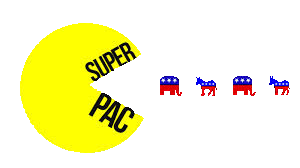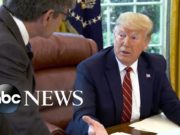Ladies and gentlemen: it’s election season. If you happen to get past the vertigo-inducing amount of candidates and polling data, you will also notice increased attacks on Super PACs and the candidates these groups independently spend money in support of or opposition to. Dig into the substance of these attacks, however, and you may find more reason to praise Super PACs than to condemn them.
Let’s examine a comment made by Sunlight Foundation President Chris Gates. He states that when candidates are struggling to raise funds to pay for their campaign, Super PACs can help to keep candidates relevant. “It does allow them to hang on. It extends the shelf life of candidates who may not be creating any buzz or fire in the electorate,” Gates says.
Taken at face value, Mr. Gates’ description of the function of Super PACs is mostly correct. The perfectly correct statement would read something like “It extends the shelf life of candidates’ messages…” The reason that caveat is important is because while Super PACs can pay for advertisements or even field staff to disseminate a candidate’s message, they are legally barred from giving money to candidates or coordinating with candidates’ campaigns. In other words, Super PACs can independently supplement a campaign, but they can’t replace it. Due to these restrictions, Super PACs have to play a guessing game as to how to effectively use their resources.
In addition, Super PACs are a valuable resource for the American public. They function to increase the amount of information available to citizens about candidates during elections. They exist to aid those candidates and Americans, who may not normally have a voice, so they can express their ideas in the same arena as well-funded candidates, like the Bush’s and Clinton’s of America.
Gates is not alone in recognizing that Super PACs have helped expand choices for voters. When asked about the longevity of campaigns, Viveca Novak of the Center for Responsive Politics said, “What we’re seeing is the ultra-wealthy picking the field, or expanding the field.” Ms. Novak is correct that the field has expanded, on both sides of the aisle, compared to the 2012 and 2008 presidential fields. Ms. Novak is also correct that Super PACs have helped encourage this change. Yet, her description of the “ultra-wealthy picking the field” carries a clearly negative connotation.
But why should that be? If self-styled “reformers” have accepted that Super PACs expand choice for voters, it’s time to stop railing against them. After all, these activists champion tax-financed campaign programs because they believe they promote new candidates who may not appeal to political elites. Experience has taught us that tax-financed campaigns fail to achieve that goal, but Super PACs succeed.
Any time there is a mention that someone can or wishes to spend their money to publicize a message, it is automatically painted by advocates for greater restrictions on political speech with a broad stroke as immoral and undermining the fabric of our society. Never mind that this funding goes towards groups that spread a message – independently – of a particular candidate or issue. Never mind that this independent funding serves “reformers’” desire to better inform the public about the issues and candidates in an election.
If one didn’t know better, it would seem that these reactionaries are willing to sacrifice improved voter knowledge and choice at the voting booth for the illusion of “getting money out” of politics. The only question is whether or not these delusions are a result of “reformers” trading their heroes for ghosts?














